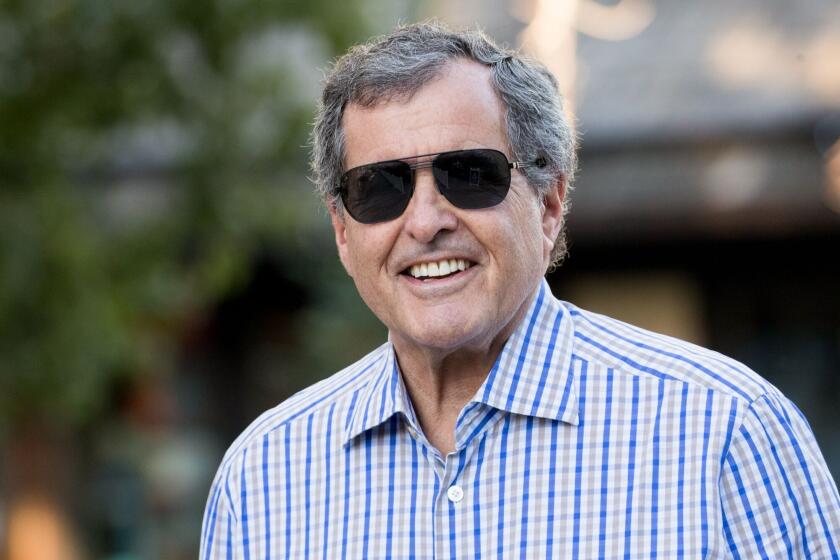Yo-Yo Entrepreneur Had to Pull Some Strings
- Share via
In 1929, struggling businessman Donald F. Duncan paid an uninvited visit to the San Simeon mansion of newspaper magnate William Randolph Hearst.
Duncan had just started his own company that made yo-yos, a little-known spinning top on a string, and he needed a way to promote business. He talked his way past a butler and into a room with Hearst.
Hearst snapped at his visitor to quickly state his business. Duncan detailed a scheme that would sell newspapers and yo-yos.
Under the plan, Hearst’s newspapers would advertise Duncan-sponsored yo-yo contests in which youngsters would compete for bicycles and sporting goods. In return, Duncan would require competitors to obtain three new subscriptions as entry fee.
Hearst liked the idea, but the public’s acceptance was simply phenomenal. A 30-day campaign in the Philadelphia Daily News sold more than 3 million yo-yos. Newspapers soon began publishing photographs of such celebrities as Bing Crosby and Jack Benny dangling yo-yos from their fingers.
For the next three decades, Duncan had the world on a string.
He hired a team of yo-yo demonstrators to tour the world. Duncan’s line of Imperials, Tournaments and Butterflies spun off the assembly line by the thousands. He became wealthy almost overnight.
Duncan, who died in 1971 at 78, didn’t invent the yo-yo, he just refined it. He spotted the toy in 1927, when Pedro Flores, a busboy in a Santa Monica hotel, began entertaining guests with spinning wooden spools he had learned to make in his native Philippines. Flores began marketing the toy, but Duncan soon bought him out.
In 1932, the U.S. Patent Office issued Duncan a trademark for the word yo-yo , a word derived from the Tagalog meaning come come . Competitors were forced to call their products Whirl-A-Gigs, Cheerios or Royal Return Tops.
But efforts to challenge Duncan’s claim to the trademark mounted over the years. In 1965, Duncan’s company, financially drained by legal expenses and overextended by advertising costs, was forced into bankruptcy. That same year, a Federal Court of Appeals ruled that the trademark was invalid because the word yo-yo was the name of the toy itself.
Suddenly, the yo-yo belonged to the world. In 1965, what was left of Duncan’s company was purchased by Flambeau Products, which continues to operate Duncan Toys as a subsidiary.
“The mistake we made was trying to fight the trademark battle,” says Donald F. Duncan Jr., who in 1988 started his own yo-yo company, Playmaxx, in Tucson. “We spent thousands trying to keep it.”
More to Read
Inside the business of entertainment
The Wide Shot brings you news, analysis and insights on everything from streaming wars to production — and what it all means for the future.
You may occasionally receive promotional content from the Los Angeles Times.






